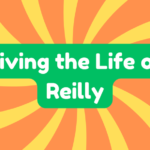The phrase "get a life" encourages individuals to step outside their routine and engage in fulfilling activities. Its origins trace back to at least 1983, reflecting a societal shift towards valuing work-life balance. It critiques monotonous lifestyles that neglect personal growth and social connections, urging people to explore interests beyond their daily obligations. Common examples include moments of self-reflection, such as, "Why spend weekends working? Enjoy some time off!" This idiom remains relevant today, highlighting the risks of getting lost in digital distractions and emphasizing the importance of meaningful experiences. Discovering its broader implications can lead to deeper insights.
Synonyms
In the context of encouraging individuals to seek a more meaningful existence, several synonyms for the phrase "get a life" emerge. These alternatives reflect a broader understanding of life priorities and the necessity to engage in leisure activities that enrich one's experience. Often, people become ensnared in trivial pursuits, neglecting the potential for a fulfilling lifestyle.
- Rediscover your passions
- Explore diverse hobbies
- Embrace transformative experiences
Such phrases challenge individuals to reconsider their daily routines and redirect their energy toward activities that foster personal growth. By consciously shifting focus from monotonous tasks to more enriching endeavors, individuals can cultivate a more satisfying life, thereby enhancing their overall well-being and social engagement.
Example of Sentences
Numerous examples illustrate the phrase "get a life" in various contexts, highlighting its applicability in everyday conversations. This expression often stems from personal anecdotes that reflect cultural shifts towards work-life balance. Here are a few illustrative sentences:
- "Why spend every weekend working on projects? Get a life and enjoy some time off!"
- "You keep binge-watching shows alone; a little socializing wouldn't hurt—get a life!"
- "It's admirable to be dedicated, but remember, friends are important too; seriously, get a life."
Such phrases capture an underlying skepticism about excessive work or isolation and challenge individuals to reflect on their choices. As societal norms evolve, "get a life" serves as a reminder to embrace a fulfilling, well-rounded existence beyond mere commitments.
Origin
The expression "get a life" has a somewhat ambiguous origin, with its true beginnings remaining unclear. This phrase's evolution surged in the late 20th century, reflecting a shift in societal values, particularly among youth. Significantly, its first recorded usage appeared in a 1983 Washington Post article, where it encapsulated a casual critique of excessive work and a robotic existence, lacking genuine human experience. The cultural significance of "get a life" lies in its role as a commentary on modern living, often highlighting the need for a more balanced lifestyle. It encourages individuals to pursue meaningful activities and engage socially, challenging the often glorified hustle mentality pervasive in contemporary society. Understanding this phrase helps unpack its broader implications on personal well-being.
Collocations
Collocations related to the phrase "get a life" often reveal the social and cultural contexts in which it is used. Understanding these collocations can illuminate the deeper implications of achieving a life balance and engaging in personal growth.
- "Get a hobby" encourages stepping outside comfort zones.
- "Live a little" highlights the necessity of risk-taking for fulfillment.
- "Take a break" underscores the importance of self-care amid busyness.
These expressions underscore societal expectations surrounding lifestyle choices and the critique of overcommitment. They serve as reminders that personal growth often requires intentionality, urging individuals to avoid the trap of trivial pursuits. Ultimately, reflecting on these collocations can foster an enriching dialogue about the nature of a fulfilling life.
How to Use in Everyday Language
Many people incorporate the phrase "get a life" into everyday language as a candid expression of concern or frustration regarding someone else's lifestyle choices. It often serves as a reminder about the importance of social engagement and achieving a balanced work-life dynamic. In discussing someone's excessive focus on work or trivial pursuits, the phrase encourages a shift toward more fulfilling activities. However, it can also risk coming off as dismissive. Hence, using it thoughtfully is essential; a more constructive tone may foster healthier conversations. Recognizing when someone's priorities misalign with personal well-being can spark dialogue about achieving genuine balance in life. Ultimately, it can prompt valuable reflections on what it means to truly "live."
Why Is It Still Relevant Today?
Understanding the phrase "get a life" remains pertinent in today's fast-paced society, where individuals often find themselves consumed by work and digital distractions. Its cultural relevance persists, highlighting the need for a balanced lifestyle amidst the overwhelming demands of modern life. Many people lose themselves in their careers or online personas, often at the expense of personal fulfillment and real-world connections. This phrase serves as a modern application and a necessary wake-up call, urging individuals to engage in diverse experiences beyond mere obligations. By embracing leisure, hobbies, and social interactions, people can reconnect with their humanity. Ultimately, "get a life" resonates as both a critique and an encouragement, prompting a re-evaluation of priorities essential for holistic well-being.
Frequently Asked Questions
How Can I Respond if Someone Tells Me to "Get a Life"?
When faced with the metaphorical storm of someone urging you to "get a life," consider ways to respond with humor. A witty comeback can deflect criticism while showcasing your resilience and light-hearted approach to life.
Is "Get a Life" Considered Disrespectful or Rude?
The phrase "get a life" often carries disrespectful connotations, reflecting cultural perceptions that denigrate individuals for their choices. Such expressions can hinder constructive dialogue, urging a reevaluation of interpersonal interactions in innovative discourse.
Can "Get a Life" Be Used Positively?
The phrase "get a life" can indeed carry positive interpretations, embodying an encouraging mindset that motivates individuals to pursue fulfilling activities and personal growth, ultimately fostering innovation and a more balanced lifestyle amidst societal pressures.
What Are the Consequences of Overworking Oneself?
Overworking oneself can severely disrupt work-life balance, leading to burnout and negatively impacting mental health. Sustained excessive effort often diminishes productivity and creativity, underscoring the necessity of prioritizing personal well-being and fostering sustainable work habits.
How Has the Phrase Evolved Over Time?
Over 70% of professionals report feeling burnt out, reflecting the phrase's evolution. Its cultural impact signifies a shift in language evolution, reinforcing the necessity for a balanced lifestyle and encouraging meaningful engagement in personal activities.







